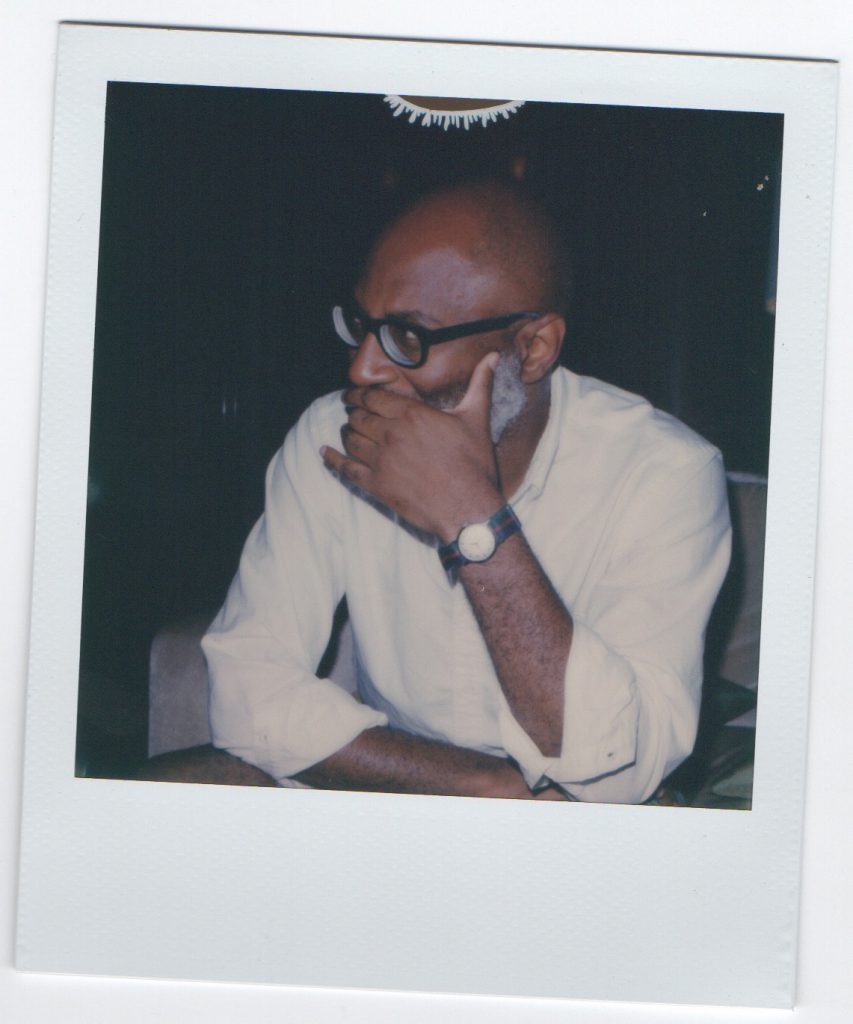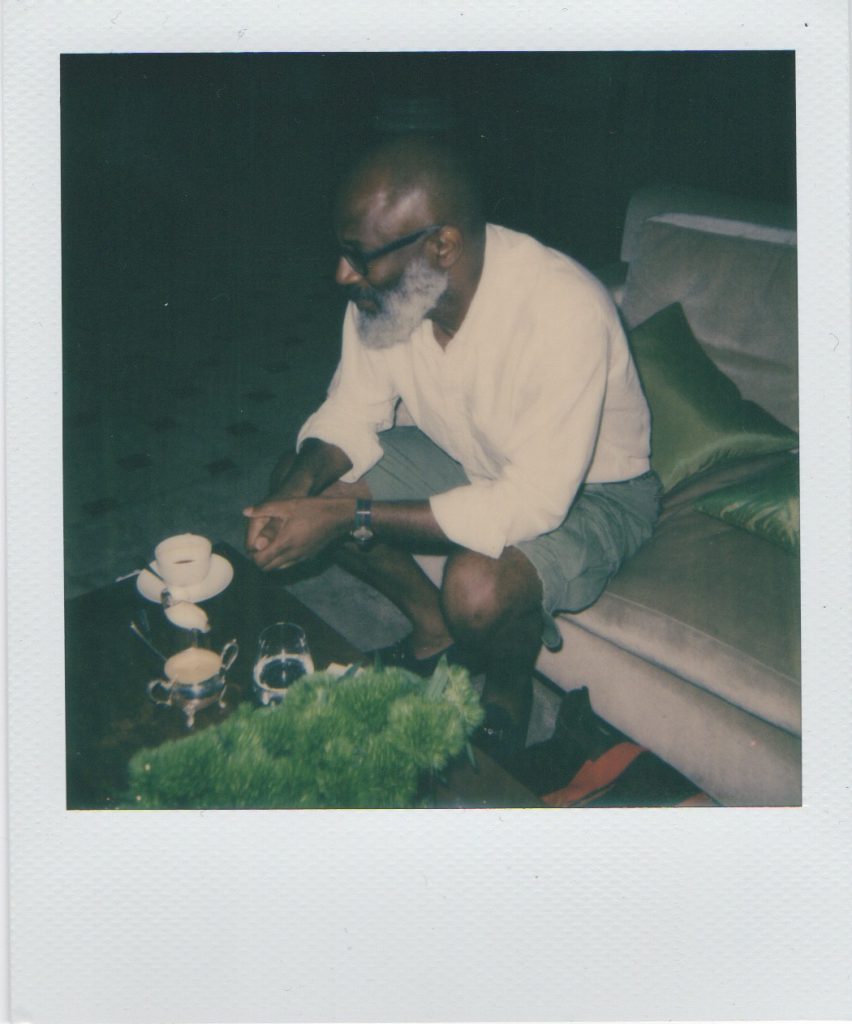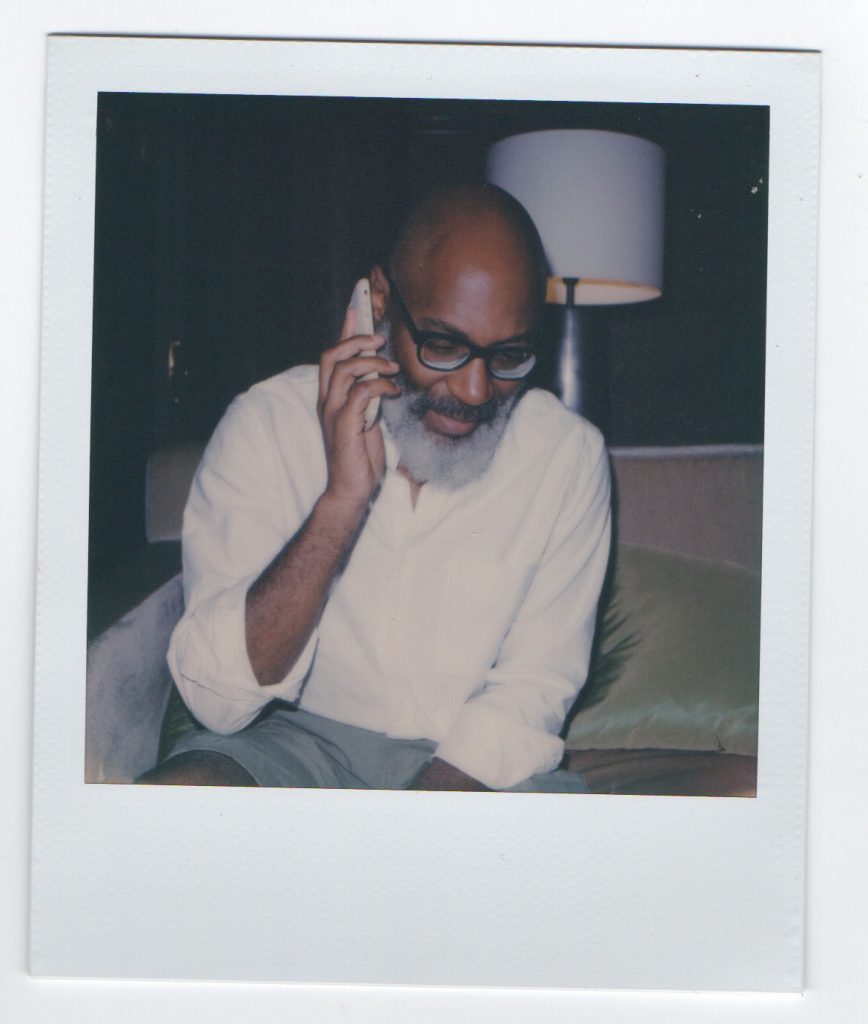
As part of their investigation into what subculture means to the past, present and future of fashion Jacket Required along with The Impossible Project present another interview with someone who knows the coup when it comes to clothing. Alongside Jazzie B and Norman Jay Jason Jules cut his teeth in the London music scene of the late 80s/early 90s before starting up the Watchmen Agency lokking after PR and marketing for everyone from Levi’s to Jay Kay from Jamiroquai. Still a key player in the world of fashion and PR, Jason’s musings and movements are documented on his ace Garmsville blog. Take it away JR & JJ…
Jacket Required: The Watchmen Agency is often cited as one of the first companies to actively bring fashion and music together, one leveraging the other. I’d like to hear your thoughts on that.
Jason: Most agencies at the time didn’t seen to grasp the intrinsic connection between music and fashion – and certainly weren’t as closely linked to emerging trends as we were, so we leveraged that and worked with a mix of brands that other agencies wouldn’t have considered possible back then.
So we wrote and did marketing and events for i-D and The Wire Magazine. We consulted for Levi’s and Wrangler as well as Sony Records and Island as Acid Jazz. We produced short films for the BBC, wrote about cinema and sport for The Times and created fashion stories for The Face magazine. We were lucky enough to work with some really forward thinking people at the time, but there were loads of brands out there that really didn’t understand. They’d entertain us, bring us in, ask us what we were doing, but in a sense they were just ticking the boxes — “having The Watchmen in” — but not really knowing what to do with us.

So, in the age of the internet, how do subcultures move forward? Are they still relevant in an age where things pop up and disappear in a matter of months?
I don’t know, what do you think?
I think it’s becoming increasingly hard for a subculture to manifest in the way we imagine. I think we’re seeing a recession of culture, of creativity. People are struggling to find a way to make those things happen still. There’s a real conflict. My generation is coming to terms with the fact that our revolution was a digital revolution, so it’s never going to be as tangible as the ones before.
You’re talking about a revolution that involves ‘feeling’. Those tools of subculture — clothes, music, clubs — exist because we had access to them. There wasn’t any other reason. So, if the digital platform isn’t giving you revolution, or a means of expression that you can feel, what is there? Although people argue that subcultures are less and less evident these days because of the immediate exposure they receive online, it’s obvious that tribalism — be it that Black Panther party or the cop watchers in the States or the emerging left and right wing movements in Europe — is anything but in decline. Fulfilling that tribal urge to be part of something distinct and different is not increasingly realised through visceral activities – like running or skate boarding – or on the other side of the spectrum something like football hooliganism.
This summer, to me, is the summer of protest. There’s going to be a protest march pretty much every weekend somewhere in the city. People are going to make statements, feel part of something and hope that they’re having an impact. Like the subcultures of the past, they’ll see things that people outside of their circle don’t see. The nature of emerging subcultures may change as the tools are no longer as primary as they once were, but the need to impact on one’s environment and physically, creatively express one’s self will never disappear.
How would you define your subcultural influence?
I’ve always figured myself as a bit of an outsider. I went to clubs and organised clubs; I liked the idea of seeing these things start up, but when they became mainstream or commercial I didn’t really want to be involved. In hindsight most people would say I dressed ‘Ivy’, but that was before anyone really knew what it was called.
That idea of outsidership seems fundamental. Do you think it has an effect on these movements when they move into the mainstream? Is it evolution or something different?
It becomes something entirely different because people buy into something they don’t really understand at a very cheap price, often because it’s what everyone else is doing. The originators do it because it’s what nobody’s doing – they’re the ones taking a risk, making a claim about their identity, separating themselves from, as Barnzley would say, the mass.
That comes with risks and criticisms, a sense of alienation. The first time I entered Soho I was 14 and it was the most amazing thing ever. I left East London as a weirdo, arrived on the Central Line at Tottenham Court Road, and felt at home. I was surrounded by a million other weirdos, and it affirmed my sense of what was possible; that you didn’t have to suffer for your interest or passion. But the mass, the people who buy into a culture later, they’re often the ones who caused the suffering. They don’t really understand the process at all – and nor should they, because they aren’t, by nature, outsiders.

So when an underground culture moves into the mainstream, what kind of an effect do you think that has?
When I was a kid I used to be really angry at that, and not because I didn’t understand or like the process; because I was surrounded by musicians with an enormous amount of talent – who once their scene exploded they’d be the ones left behind. Someone with less talent, credibility, passion and definitely less originality would benefit rather than the people who started it. But that’s just the way it works.
What I eventually realised is it’s not about a creative culture. There’s a line between authenticity and what people want from you. I tried to get a cover story on an artist once, and was told he was too retro; too obscure; too niche. So I said, “Well, you’ve got Oasis on the cover? How are they relevant? They’re pillaging the 60s.” There was nothing relevant about them at all in terms of contemporary music. And they said, “It’s not about the music; they’re brothers, they get drunk and have lots of fights.” So it’s different from culture, and if you get upset about it you’re missing the point. It’s about creating a personality and making it bigger than the music, which is basically a backdrop. What people buy into is everything else.
You’ve talked before about working in the 90s club scene until it became a thing, then leaving because you weren’t there for that. Is having the option to leave important?
For me it is. I find myself ‘retiring’ from stuff all the time because it changes. It’s no longer interesting. In the early 80s Soho became a kind of wasteland, deep in recession, clubs and venues were empty during the week. And then, there was us. We were pocket communities, DJs, sound systems, scenes, crews – all coming together from all parts of London, with no prescribed idea of what we were doing. As this extended community necessarily grows, it gets noticed by people, and reaches those it didn’t before, who didn’t really get it. I remember Chris Sullivan once saying something like The Wag changed to when you couldn’t tell a regular from a non- regular – when you couldn’t tell ‘Us’ from ‘Them’ – that was it. The Wag was important and influential because it was anti-fashion, a creative, but non-trend movement. When the people that I, and others like me, managed to avoid by going to Soho start going to clubs like The Wag, that to me becomes a totally different thing.
